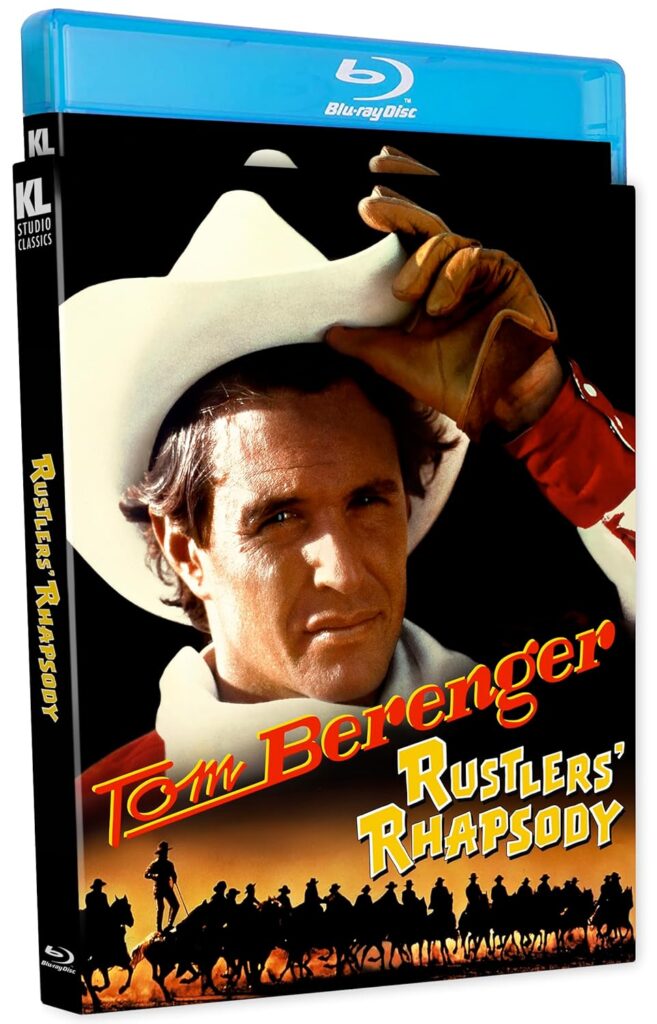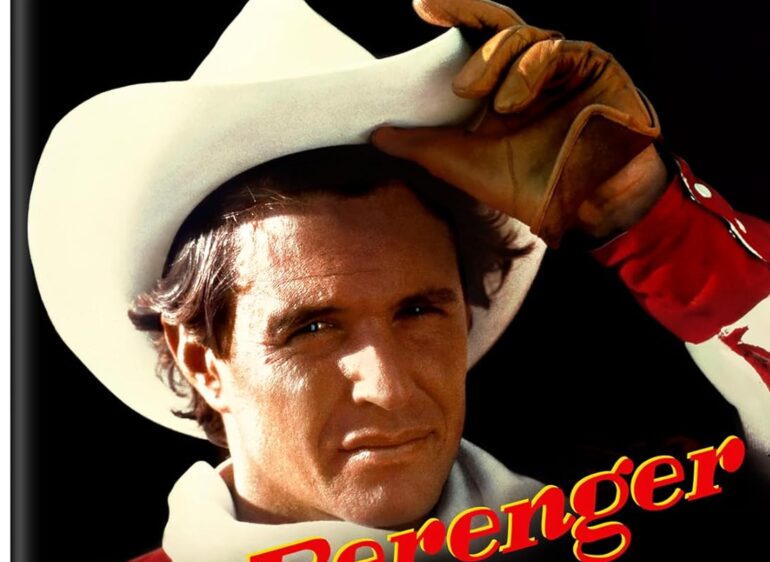Verdict
Summary
When Rustlers’ Rhapsody was released in 1985 (which is when I saw it theatrically), it was 40 years removed from the era in which it parodies, the Roy Rodgers / Gene Autry singing cowboy movies, and now we’re 40 years from this film’s release, which makes it 80 years removed from the era in which it parodies. That’s a significant difference, and while I still find myself “in on the joke,” I fear that the audience for the film has shrunken to almost nonexistent levels. Kino Lorber has brought Rustlers’ Rhapsody to Blu-ray in a really sharp HD master from a 4K scan of the original camera negative, and it looks and sounds fantastic for a 40 year old film. There’s a new audio commentary from some film historians, a trailer, and a slipcover.
Plot:
A singing “good guy” cowboy gets a reality check when all of a sudden his black-and-white world turns to color.
Review:
Daybill “good guy” singing cowboy Rex O’Herlihan (Tom Berrenger who was perfectly cast) has saved the day from cattle rousters, outlaws, and brigands for more than forty films, when all of a sudden his black and white existence turns to vivid color literally mid-scene in one of his movies, and the bad guys he’s chasing on his trusty horse Wildfire realize he’s just one man and they turn around and chase him! Since that’s the first time that’s ever happened, Rex is totally flummoxed because he has an uncanny knack for “seeing the future” because all his movies are exactly the same, with the same, recycled plot, done over and over. Now that Rex is in a color world, he is (mostly) a fish out of water, encountering more ruthless than usual bad guys who laugh at his threat that he’ll “shoot them in the hand,” because he is, after all, a true good guy and never kills anyone. He’s also propositioned by very sexy ladies – one of whom is a prostitute (Marilu Henner), and the other of whom is the daughter (Sela Ward) of the local land baron (Andy Griffith) – and Rex has got his virginal hands full and hardly knows what to do with them! He also picks up a drunk sidekick (G.W. Bailey, who’s a kick), who also narrates the story from a point of view that is more in on the joke than Rex could possibly know or fully understand. When Rex rides into town, he also rides into trouble when an Italian gang (run by Fernando Rey) is hired by the land baron to clear a way for the railroad to be built nearby, but when Rex mucks up their plans with good old-fashioned goodness and righteousness, they hire another good guy (played by Patrick Wayne) to get rid of Rex. Which of them is the most good “Good Guy?” We’ll find out!
When Rustlers’ Rhapsody was released in 1985 (which is when I saw it theatrically), it was 40 years removed from the era in which it parodies, the Roy Rodgers / Gene Autry singing cowboy movies, and now we’re 40 years from this film’s release, which makes it 80 years removed from the era in which it parodies. That’s a significant difference, and while I still find myself “in on the joke,” I fear that the audience for the film has shrunken to almost nonexistent levels. That’s the sad part of films made from a certain era … they become less relevant. That doesn’t mean they’re less entertaining, but you’ve got to have a certain level of awareness and appreciation for what this movie is about before you can watch it and “get it,” otherwise it’s going to drop hard like a leaden weight. Watching it today after so many years (and I’ve got very fond memories of seeing it in a theater and then afterwards buying the soundtrack on cassette, brand new!) was an interesting, if sobering experience, and I still laughed and had fun with it, but I wonder how many today can say the same about it should they watch it cold. Hugh Wilson, the director of the original Police Academy, directed this with a loving hand and heart, and it’s a well-made and nicely produced ode to a very bygone era.
Kino Lorber has brought Rustlers’ Rhapsody to Blu-ray in a really sharp HD master from a 4K scan of the original camera negative, and it looks and sounds fantastic for a 40 year old film. There’s a new audio commentary from some film historians, a trailer, and a slipcover.



